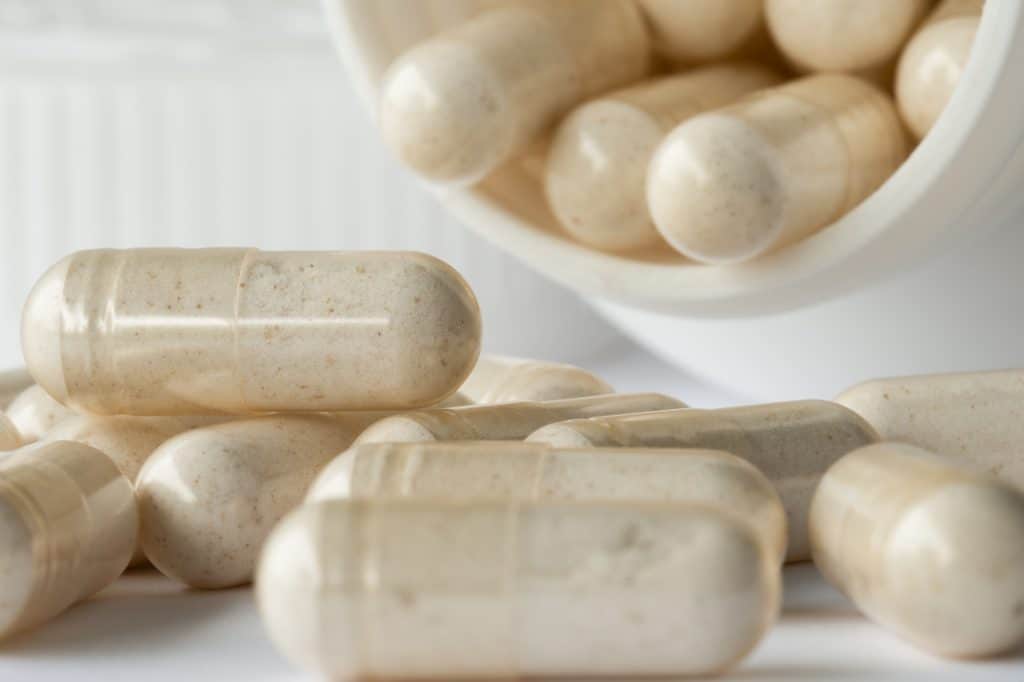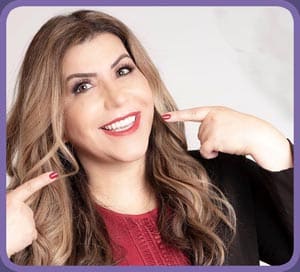Dental Probiotics, Do They Work?
Last updated Thursday, October 5th, 2023

The science of probiotics has come into focus over the past few years as both doctors and patients have discovered the health benefits of using them as a supplement to a normal diet. They can be taken in an oral form or by adding certain consumed foods to your current diet. Probiotics have solved health problems that were previously thought to be either unsolvable or health issues that people have just “had to live with.”
You hear a lot about the benefits probiotics have had for gut health. But did you know there are also probiotics for dental health as well?
So what exactly are dental probiotics? The quick answer is this: Dental probiotics are affordable supplements that contain healthy microorganisms and yeast that are safe for humans to consume. They naturally live in our bodies already. They encourage beneficial bacteria and microorganism growth to eliminate the production of bad bacteria that causes oral problems, such as bad breath, gingivitis, decay, and other problems associated with the human mouth.
Probiotics for dental issues introduce good bacteria into the mouth to eliminate the bad bacteria and yeast that naturally live in your body, as well as help reduce the pH level in the mouth. The mouth, like the stomach and digestive system, has its own community of bacteria and microorganisms called a microbiome that can wreak havoc on a person’s dental health.
Having an overabundance of bad bacteria and/or yeast can knock your system out of balance. By including the best supplements or foods that contain good bacteria and healthful microorganisms, the bad is fought off by the good bacteria. In this case, the good guy wins!
Dental probiotics, otherwise known as oral probiotics, have made their way into the health world and have shown incredible benefits for people with common oral problems. Most often they are delivered through chewable tablets or lozenges that dissolve in the mouth or a probiotic drink. Some toothpastes and mouthwashes even contain oral probiotics.
Ready to Get Your Beautiful Smile?
CALL (480) 780-1511
Take control of your life and give yourself the smile you deserve! With our $99 New Patient Special, the time to book your appointment with your cosmetic dentist in Gilbert is now!
What are the benefits of dental probiotics?
Adding probiotics to your diet is known to support a healthy mouth and helps restore healthy oral bacteria and yeast production. This additional supplemental amount of the good bacteria has proven to help with conditions such as:
-
- Halitosis, otherwise known as bad breath
- Gingivitis
- Periodontal disease/gum disease
- Tonsillitis
- Oral infections
- Tooth decay
- Oral yeast infection (candidiasis)
- and other oral issues.
Ready to Conqure Bad Breath?
Take control of bad breath forever and discover the Best Cure for Bad Breath now!
Do probiotics help bad breath?
Absolutely. In fact, up to 85% of patients have said that reducing the negative bacteria/yeast in the mouth by ingesting probiotics is easy and has shown that their bad breath has been majorly reduced. This is great news for people that have suffered from bad breath and have tried everything before probiotics to help reduce it.
Will probiotics protect my teeth?
The best way to protect your teeth is by using good oral hygiene, including brushing and flossing regularly. But what if you already have good oral health and still are having issues?
Enter probiotics. By regulating the bacteria in the mouth, the teeth are automatically protected because of the reduction in bacteria that causes tooth decay. The good bacteria also protects gums, tonsils, tongue, skin, the throat, and anything else connected to the oral cavity.
Can probiotics prevent oral cancer?
Studies are still being conducted on oral probiotic use to treat or prevent malignant cancer cells from forming in the mouth. The hope is that they can help by either eliminating the abnormal cells responsible for cancer completely or by slowing or stopping the progression of certain types of cancers that live in the oral cavity.
There are many parts of the mouth that can be affected by cancers. Some types of oral cancers include (but are not limited to):
- Cancer of the gums
- Cancer of the lips
- Cancer of the tongue
- Cancer of the cheeks
- Cancer of the hard and soft palates
- Cancer of the jaw
- Cancer of the roof or floor of the mouth.
The most common types of oral cancer is found in the lips or the tongue. Can dental probiotic therapy help with any of these common types of cancers?
At this point, these studies have been very promising. They have shown that there is likely a link between the use of dental probiotics and the reduced risk of different types of mouth cancer. Early findings are showing that some dental probiotics may possess strong anti-cancer properties that may even eliminate the risk of oral cancer.
How do dental probiotics work?
Taking supplements in the form of tablets, gummies, capsules, lozenges, or even powders by mouth is an easy way to add probiotics to your body. You can also increase your own natural probiotics in the mouth by adding certain foods to your diet.
Some foods that are easy to find and contain natural oral probiotic properties include:
- Probiotic milk
- Yogurt
- Cultured cottage cheese
- Sauerkraut
- Pickled cucumbers or other pickled or fermented vegetables
- Cheeses, especially soft cheeses
- Dark chocolate
- Mangos
- Almond butter
- Sourdough breads
- Miso
- Kombucha (a fermented tea)
- Kefir (a fermented milk drink)
Of the supplemental probiotics out there, several have shown to be very useful in treating oral bacterial overgrowth. These probiotic strains include Lactobacillus, Weissella cibaria, Bifidobacterium, and Streptococcus strains.
Ingesting probiotics has been found to protect and fight dental and oral problems, from the minor to more serious issues.
What dosage of probiotics is needed for dental health?What dosage of probiotics is needed for dental health?
Just like anything, the proper dosage of oral probiotics varies from person to person. Talking to your dentist is the best course of action in finding out what probiotics and dosages will be right for you. Remember, all probiotics are not the same. There are many, many varieties on the market today, both in prescription and over the counter forms.
How long do I need to take dental probiotics?
For many patients, they see a drastic improvement in the amount of negative bacteria within a few days to a week’s time. In that time, the first sign that most people see is a dramatic reduction in bad breath.
In the beginning of oral probiotics treatment, 30 days is a reasonable amount of time to see how well they will work for you. Because they add the same healthy bacteria and yeast to your body as what your body naturally produces, they are known to be safe for long term use.
Many people have found that adding a probiotic routine on a daily basis has made a significant difference in their lives and oral health.
Will dental probiotics interact with other medications I am taking?
You will want to discuss the medications you are currently on with your dentist before adding any sort of new probiotic routine. Depending upon the medication you are currently taking, it’s possible to have some adverse side effects. Most medications are found to be fine though.
What are the possible side effects of dental probiotics?
Side effects of using dental probiotics tend to be extremely mild or non-existent for most patients. The general consensus about side effects from probiotic usage has been highly positive.
At the very beginning of treatment, it’s possible to have an upset stomach, diarrhea, bloating or gas, although these side effects are minimal. There is also a slight risk of an allergic reaction.
Talking to your doctor or dentist is always an important first step into finding out the risks in your particular situation. Our bodies are all different.
What is the shelf life of dental probiotics?
The average shelf life of oral probiotics is around one year from the manufacture date. After the one year mark, they haven’t shown to be harmful, however the efficiency may be much lower.
Get Started On Your New Smile
It's time you stop putting off your next dental visit. Whether it's a general check-up or a complex restorative or cosmetic procedure, the time to book your appointment is now!

